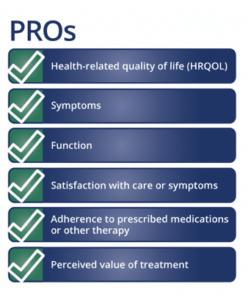


The investigators of Guiding Good Choices for Health (GGC4H), an NIH Collaboratory Trial, have received approval to move from the planning phase to the implementation phase of their study. Congratulations to the GGC4H study team for their excellent work!
At the May 2019 NIH Collaboratory Steering Committee meeting, we talked with Drs. Stacy Sterling, Margaret Kuklinski, and Richard Catalano to hear about progress and challenges during the UG3 planning phase. The goal of GGC4H is to test the feasibility and effectiveness of implementing Guiding Good Choices—a universal evidence-based anticipatory guidance curriculum for parents of early adolescents—in 3 large, integrated healthcare systems serving socioeconomically diverse families.
“Guiding Good Choices is a tested and proven intervention in community and school-based settings. We think primary care is an ideal implementation setting because pediatricians have parents’ trust, and the AAP recommends that they offer anticipatory guidance to parents. Community and school settings do not often have the same advantages.” — Rico Catalano, Co-PI of GGC4H
In the UG3 phase, the study team partnered with 5 pediatric primary care clinics in Kaiser Permanente Northern California, Kaiser Permanente Colorado, and Henry Ford Health System, finalized the trial protocol, obtained IRB approval, and presented UG3 and pilot study findings at 2 recent national meetings: the Society for Prevention Research and the National Academy of Medicine Collaborative for Healthy Parenting in Primary Care.
Were there any surprises during the study’s planning phase?
“I’ve been pleased and surprised to see the near universal excitement for Guiding Good Choices across the 3 healthcare systems and in multiple clinics. My previous work has been with adolescents who have already started to develop problems and are clearly at risk. Often when you are engaging those teens and their parents, they are coming from a place of crisis and have a lot of anxiety and worry. With Guiding Good Choices, we’re offering it to all families of young adolescents in the pediatric clinics, and we’re heartened to see pediatricians and parents welcoming this.
“The parents and kids were so enthusiastic and excited in our pilot. It’s been extremely heartening, and I think it bodes well for the reception we’re going to get.” — Stacy Sterling, Co-PI of GGC4H
What is an example of a challenge that you were able to overcome with the help of a Core Working Group?
Our study has two core questions: Will Guiding Good Choices improve adolescent behavioral health when offered in a health care setting? Will parents in a health care setting actually enroll in Guiding Good Choices and to what degree? Our initial study design attended more to the second question, and in doing that, raised problems for the valid assessment of effectiveness. These issues could have prevented us from transitioning to the implementation phase, so we needed a good design for assessing both effectiveness and implementation. Our original plan would have included all adolescents who had well visits, but at some clinics, 25% of teens don’t have them. Our new design, developed with the IRB chair and the Biostatistics and Study Design Core, includes everyone who receives care at the pediatric clinic. Although we may enroll some people who don’t engage with the intervention, this will make the study results more generalizable and valid for both effectiveness and implementation.
What words of advice do you have for investigators conducting their first embedded PCT?
“It’s a really fasted-paced year. I think we have complementary strengths across the leaders at our sites, and that is important. Pay attention to the qualities of your team and how they can help you hit the ground running and eventually help you get across the finish line to the UH3 phase.” — Margaret Kuklinski, Co-PI of GGC4H
GGC4H is supported within the NIH Collaboratory by a cooperative agreement from the National Center for Complementary and Integrative Health and receives logistical and technical support from the NIH Collaboratory Coordinating Center. Read more about GGC4H in the Living Textbook, and learn more about the NIH Collaboratory Trials.
 In this Friday’s PCT Grand Rounds, Dr. Margaret Kuklinski and Dr. Stacy Sterling will present “Adoption, Implementation and Sustainment of Family-Focused Prevention in Health Care Systems: How Do We Get There?” Kuklinski and Sterling are the principal investigators of GGC4H, an NIH Pragmatic Trials Collaboratory Trial.
In this Friday’s PCT Grand Rounds, Dr. Margaret Kuklinski and Dr. Stacy Sterling will present “Adoption, Implementation and Sustainment of Family-Focused Prevention in Health Care Systems: How Do We Get There?” Kuklinski and Sterling are the principal investigators of GGC4H, an NIH Pragmatic Trials Collaboratory Trial.


 During the NIH Pragmatic Trials Collaboratory Steering Committee meeting and 10th anniversary celebration, Dr. Keith Marsolo, Co-chair of the
During the NIH Pragmatic Trials Collaboratory Steering Committee meeting and 10th anniversary celebration, Dr. Keith Marsolo, Co-chair of the 


 The GGC4H NIH Collaboratory Trial, now in its implementation phase, has begun enrollment of study participants. Congratulations to Drs. Kuklinski, Sterling, and Catalano and the entire GGC4H study team!
The GGC4H NIH Collaboratory Trial, now in its implementation phase, has begun enrollment of study participants. Congratulations to Drs. Kuklinski, Sterling, and Catalano and the entire GGC4H study team!

